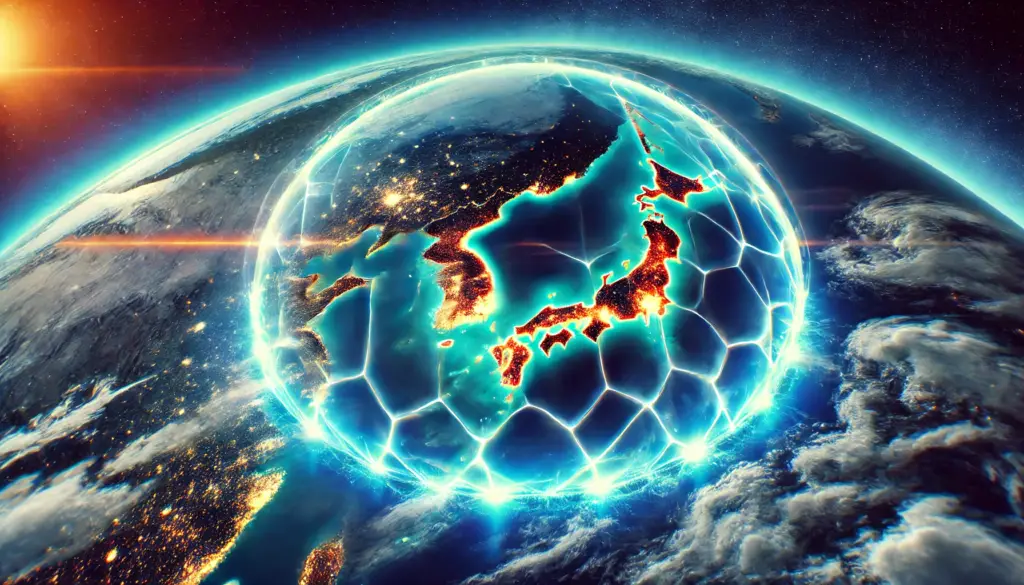
In recent months, a quiet but fiery debate has been growing in Japan—a nation known for its pacifist constitution and deep scars from Hiroshima and Nagasaki. For the first time in decades, the idea of Japan developing its own nuclear weapons is no longer confined to the political fringes. It is now discussed openly in policy circles, television debates, and even in the National Diet.
💥 So how did a country with one of the world’s strongest anti-nuclear sentiments end up reconsidering the ultimate weapon?
Trump’s Provocation: “Why Should We Protect Japan?”
The latest surge in the nuclear discussion was triggered by former U.S. President Donald Trump’s remark during a 2024 rally:
“Why should we protect a country that won’t even protect us?”
This was in reference to Japan’s security treaty with the United States, under which Japan receives American military protection while maintaining minimal offensive military capabilities of its own. The comment sparked widespread debate in Japan and rekindled questions about national self-defense and strategic independence.
With growing uncertainty over the reliability of the U.S. nuclear umbrella, some Japanese lawmakers—mainly from conservative factions—have floated a controversial idea: Japan should develop its own nuclear weapons.
The “Cheap Deterrent” Argument from Tokyo’s Right Wing
Among the most striking arguments comes from a small group of nationalist lawmakers who claim nuclear weapons would be the “cheapest and most effective” deterrent. According to them:
- Japan is surrounded by nuclear powers: China, Russia, and North Korea.
- Conventional military expansion is costly and politically divisive.
- A limited, defensive nuclear arsenal would deter aggression without the need for massive military build-up.
Their logic is simple: if Japan had nuclear weapons, no adversary would dare attack.
📣 This argument has found some sympathetic ears in the business world and among younger conservative voters who feel Japan is overly dependent on the U.S. for defense.
Hiroshima and Nagasaki Say: Never Again
On the other side of the spectrum, voices from Hiroshima and Nagasaki—the only cities in the world to suffer nuclear attacks—have responded with emotional and moral opposition. Survivors (known as hibakusha), peace NGOs, and local officials have expressed outrage at the mere idea of Japan becoming a nuclear-armed state.
One Hiroshima city councilor said:
“We have turned our tragedy into a mission for peace. Nuclear weapons in Japanese hands would be the ultimate betrayal of our history.”
Both cities hold annual ceremonies promoting global nuclear disarmament, and any move toward rearmament would be seen as abandoning Japan’s long-held postwar pacifism.
Is It Even Possible? Legal and Technical Obstacles
While Japan possesses advanced nuclear technology through its civilian energy programs and has large quantities of plutonium, there are major hurdles:
- Constitutional constraints: Article 9 of the Japanese Constitution renounces war and forbids offensive military capability. Nuclear weapons would almost certainly be unconstitutional under current interpretation.
- Public opinion: Despite some shifts, most Japanese still oppose nuclear armament.
- International backlash: Japan signing the Non-Proliferation Treaty (NPT) binds it legally not to pursue nuclear weapons. Breaking this would bring diplomatic isolation and possibly economic sanctions.
🧩 Technically, Japan could develop a bomb within months. Politically and morally, however, the cost would be enormous.
Japan’s New Identity Crisis
The nuclear debate is just one facet of Japan’s evolving national identity. Once content to play the role of a peaceful economic power under American protection, Japan now faces new questions:
- Should it remain a pacifist nation in an increasingly dangerous neighborhood?
- Should it align more closely with the U.S., or chart its own course?
- Can it hold on to its moral legacy while adapting to 21st-century realities?
💭 The answers will not come easily. But the fact that this debate is happening at all marks a turning point in postwar Japanese politics.
Final Thoughts: More Than a Policy Shift
What we are witnessing is not just a policy discussion—it is a philosophical battle over what kind of country Japan wants to be. The scars of Hiroshima and Nagasaki are not just historical—they are moral guideposts. Yet the world Japan lives in today is far more volatile than the one that birthed its pacifist stance.
Will Japan turn toward the bomb, or deepen its commitment to peace?
Only time—and the people of Japan—will tell.



















































